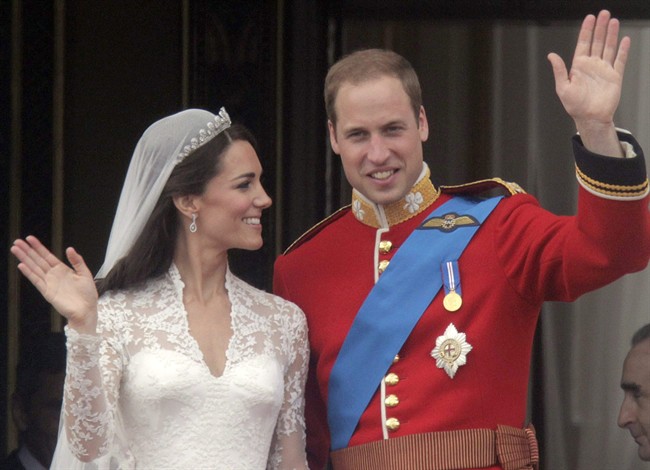OTTAWA – Call it the William and Kate effect.

Less than four months after the royal couple wowed Canadian crowds on a cross-country tour, their visit may have rattled loose the monarchist teacups at the Prime Minister’s Office.
A debate over who inherits the British throne – and by extension the role of Canada’s head of state – appears set to bloom, despite Prime Minister Stephen Harper’s stated goal of keeping the national focus on the economy.
A British movement to modernize the 300-year-old rules of succession for replacing the monarch has been kick-started by the prospect of Prince William – second in line to the throne behind his father Charles – and Catherine, the Duchess of Cambridge, producing a child.
Under the 1701 Act of Settlement, precedence is given to male heirs, bypassing older sisters. The rules also bar any heir married to a Catholic from inheriting the throne.
David Cameron, Britain’s prime minister, sent a letter last month to Commonwealth nations seeking consensus on rewriting these rules.
“We espouse gender equality in all other aspects of life and it is an anomaly that in the rules relating to the highest public office we continue to enshrine male superiority,” Cameron wrote.
As for the ban on marrying Catholics, which dates from a period of religious strife in British history, Cameron wrote that “this rule is a historical anomaly – it does not, for example, bar those who marry spouses of other faiths – and we do not think it can continue to be justified.”
The matter of barring Catholics from ascending to the throne is not part of the proposed reforms, because the monarch is automatically supreme governor of the Anglican Church.
Commonwealth leaders will discuss Cameron’s proposals when they meet later this month at a summit in Perth, Australia.
“Prime Minister Harper has informed Prime Minister Cameron that we are supportive of these reasonable modernizations,” spokesman Andrew MacDougall said Thursday in an email.
Harper’s chief spokesman added, however, that the government doesn’t “believe there should be extensive parliamentary time spent debating them when the government is focused on creating jobs and growth in the economy.”
It was a carefully Canadian response.
Any debate that draws attention to a hereditary monarchy and its role in a modern democratic state is bound to raise uncomfortable questions.
Only 15 of 54 Commonwealth countries still recognize the Queen as their head of state. The monarchy has always been a friction point in Canada’s French-English divide. There are vocal republican movements in Australia and New Zealand.
Harper was decidedly cool to the succession rule changes when the subject was broached last spring.
“The successor to the throne is a man,” Harper pointed out on the election trail in April. “The next successor to the throne is a man.
“I don’t think Canadians want to open a debate on the monarchy or constitutional matters at this time. That’s our position. I just don’t see that as a priority for Canadians right now.”
Conservatives may not have been ready to debate the monarchy, but promoting it was another matter.
Since winning a majority mandate on May 2, the Harper government has ordered that the Queen’s portrait hang in all foreign missions, and has renamed the air force and navy to restore the “royal” moniker dropped four decades ago.



Comments